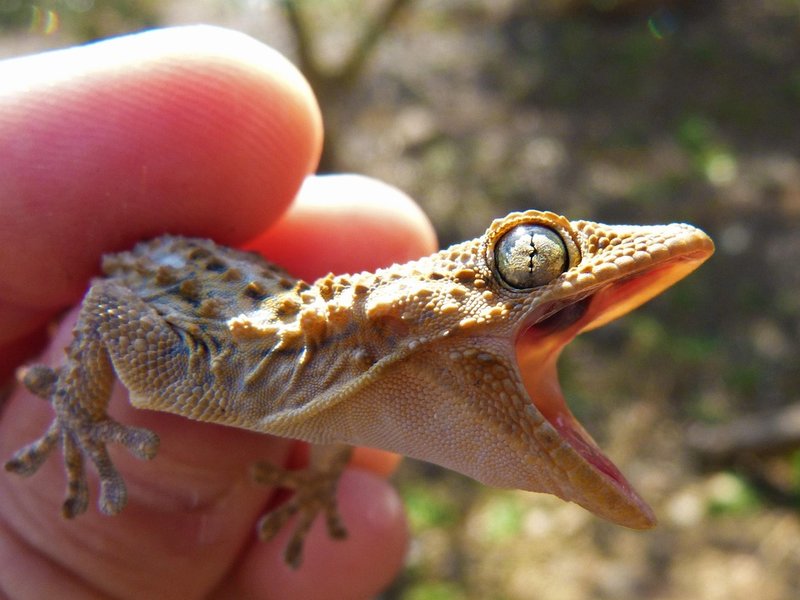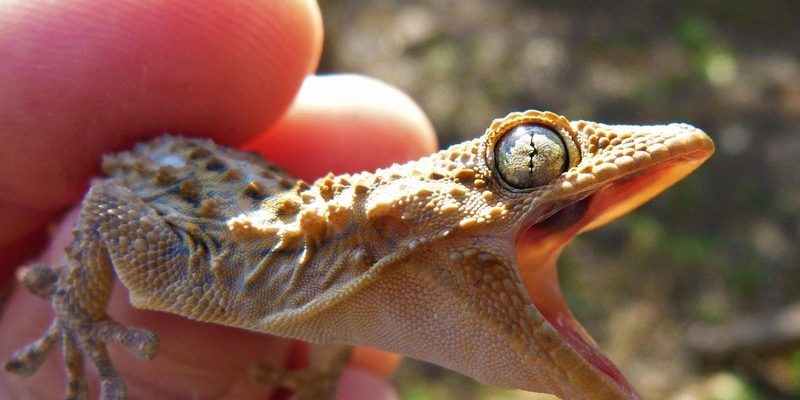
Geckos are generally harmless and can even be beneficial, as they eat pests like insects. However, just like any wildlife, there’s always a little nuance. Let me explain further why geckos are mostly safe but what you should consider.
Understanding Geckos: An Overview
Geckos belong to the family Gekkonidae, which includes over 1,500 species worldwide. These little lizards thrive in warm climates and are particularly abundant in tropical areas. They are often recognized for their distinctive vocalizations, which can range from chirps to barks, depending on the species. They come in a variety of colors and patterns, making them quite beautiful to observe.
While they are primarily insectivores and feast on pests like mosquitoes, flies, and even cockroaches, you might also notice them being active during both day and night. Some species are nocturnal, showcasing their unique adaptations, such as large eyes that help them see in low light. The appearance and characteristics of geckos can vary widely, adding to their charm and intrigue.
However, you might be surprised to learn that some gecko species can grow quite large—for instance, the Tokay gecko can reach up to a foot long! This size variation can lead to different behaviors and even temperaments among species.
Are Geckos Venomous?
One of the most common concerns about geckos is whether they are venomous. Here’s the good news: most geckos are not venomous. Unlike snakes or some lizards that can deliver a painful bite or toxic venom, geckos primarily rely on their agility and camouflage to escape predators.
Now, there are a few exceptions in the lizard world, but they generally don’t include geckos. The majority of geckos can’t harm humans. In fact, even if they do bite, it’s more likely to be a defensive action rather than an attack. Their bites may cause some irritation or minor swelling, but nothing serious.
If you do encounter a gecko and feel uncomfortable, simply observe from a distance. They are more likely to flee than fight!
Can Geckos Carry Disease?
You might be wondering if geckos pose any health risks through disease transmission. While the odds are low, they can potentially carry bacteria like Salmonella. This is similar to many reptiles, including turtles and iguanas, which can harbor bacteria in their droppings.
To minimize any risk, it’s always best practice to wash your hands after handling a gecko or cleaning up after one. Just like you wouldn’t dive into a pizza box without washing your hands, a little cleanliness goes a long way!
If you have a pet gecko, regular vet check-ups can help ensure that your little friend is healthy and free of harmful bacteria, keeping both you and them safe.
Common Misconceptions About Geckos
It’s easy to form opinions based on myths or hearsay, especially when it comes to animals like geckos. Here are a few common misconceptions:
- Geckos are aggressive: Most geckos prefer to avoid confrontation. They’re more likely to run away than attack.
- All geckos are poisonous: As mentioned earlier, most are harmless and pose no venomous threat.
- Geckos are dirty: While wild geckos can carry bacteria, they also serve as natural pest control, eating unwanted insects.
It’s easy to jump to conclusions about any creature we don’t fully understand. But getting to know geckos reveals that they’re typically benign and can even be helpful around the house.
What to Do If You Encounter a Gecko
If you do come across a gecko in your home or yard, you might wonder what your next steps should be. Here’s a simple guide to follow:
1. Observe: Take a moment to watch the gecko. They’re often more entertaining than you realize!
2. Don’t Panic: Remember, they’re mostly harmless. Keeping calm can help both you and the animal.
3. Relocate if Necessary: If you want to move the gecko outside, use a container—like a small box or a cup—to gently guide it out without harming it.
4. Seal Entry Points: After moving the gecko, check your home for any possible entry points. Geckos can slip through tiny spaces, so sealing these can prevent future visits.
By taking these simple steps, you can protect both yourself and the gecko.
Geckos in Culture and Myths
Geckos have a fascinating place in various cultures and myths around the world. In some cultures, they are seen as symbols of luck and protection. For instance, in certain Pacific Island cultures, seeing a gecko in your home is considered a sign of good fortune.
On the flip side, there can be negative connotations as well. Some people believe geckos are harbingers of misfortune, especially if they cross your path. These beliefs often stem from regional folklore, which varies widely.
It’s interesting to see how the perception of this little lizard can change depending on cultural backgrounds. However, regardless of these beliefs, it’s important to acknowledge their ecological role and the general safety they present to humans.
In summary, geckos are generally harmless creatures that bring a touch of nature into our lives, whether they’re exploring our homes or scurrying across our gardens. While they can carry bacteria and have a few myths surrounding them, the average person has little to fear from these fascinating lizards. In fact, they can be quite beneficial, helping to keep pesky insects at bay.
So next time you spot a gecko, take a moment to appreciate its unique beauty and role in nature. You may even find yourself a little enchanted by this tiny creature. After all, understanding our world includes embracing its many inhabitants, even the ones that skitter up our walls!

